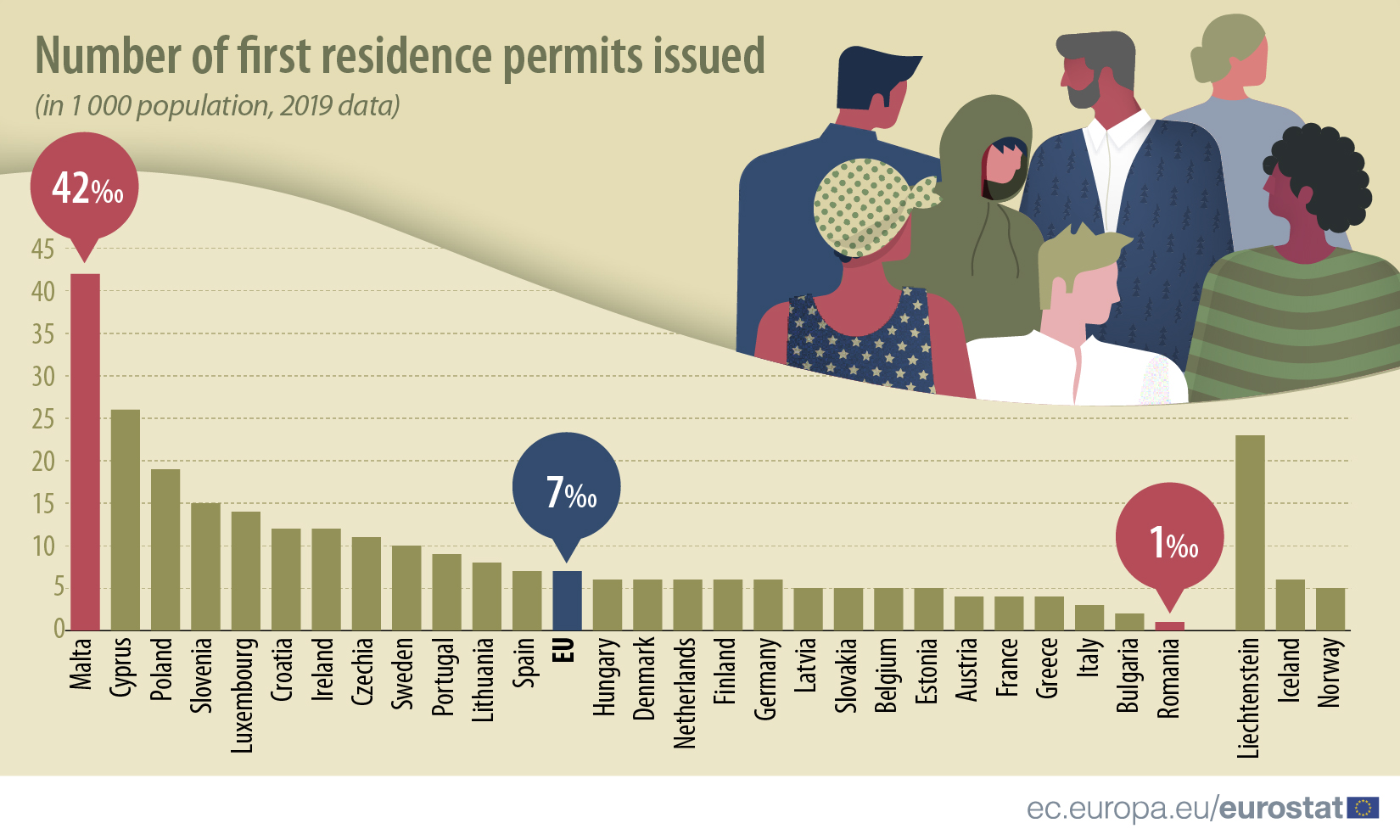Immigration is a hotly debated issue in the EU. To be more precise: immigration from the ‘south’ is hotly debated. Immigration from the East is much more important and increasing. Some facts: Immigration into the EU is increasing and has been increasing for quite some time (the ‘first residence permits’ mentioned in the graph and the quote are not permanent residence permits)This is to a considerable extent caused by immigration into Poland from countries like Ukraine and Belarus. Immigration shifted from Syrian and Ukrainian war refugees to people from Ukraine and Belarus wanting to improve their lives EU countries are bending over backwards to restrict immigration from the south (consider the walls in for in stance Ceuta and Melilla, built and paid for by Spain). But not so for
Topics:
Merijn T. Knibbe considers the following as important: Uncategorized
This could be interesting, too:
tom writes The Ukraine war and Europe’s deepening march of folly
Stavros Mavroudeas writes CfP of Marxist Macroeconomic Modelling workgroup – 18th WAPE Forum, Istanbul August 6-8, 2025
Lars Pålsson Syll writes The pretence-of-knowledge syndrome
Dean Baker writes Crypto and Donald Trump’s strategic baseball card reserve

Immigration is a hotly debated issue in the EU. To be more precise: immigration from the ‘south’ is hotly debated. Immigration from the East is much more important and increasing. Some facts:
- Immigration into the EU is increasing and has been increasing for quite some time (the ‘first residence permits’ mentioned in the graph and the quote are not permanent residence permits)
- This is to a considerable extent caused by immigration into Poland from countries like Ukraine and Belarus. Immigration shifted from Syrian and Ukrainian war refugees to people from Ukraine and Belarus wanting to improve their lives
- EU countries are bending over backwards to restrict immigration from the south (consider the walls in for in stance Ceuta and Melilla, built and paid for by Spain). But not so for immigration from ‘The East’ I’m not aware of walls along the eastern border of Poland.
- Do not underestimate the importance of these developments, also when it comes to migration within the EU. It’s only since a couple of years, citizens of Eastern European EU members are free to relocate as ‘workers’ (not as ‘persons’…). This did lead to the relocation of millions of people from Romania and Poland to Germany, the UK and Spain, including 80% of Bulgaria’s newly qualified doctors. Large areas of Europe are depopulating quite rapidly.
- Anyway, according to Eurostat:
In 2019, about 3.0 million first residence permits were issued in the EU to non-EU citizens. The number rose by 6% (or 163 000) compared with 2018, continuing the upward trend observed since 2013. The year-over-year increase in the total number of first residence permits was mainly driven by the increasing number of first permits issued for employment reasons (up by 214 000, or 22%) … In 2019, Poland issued a quarter of all first residence permits granted in the EU to non-EU citizens (724 000, or 25% of total permits issued in the EU), followed by Germany (460 000, or 16%), Spain (320 000, or 11%), France (285 000, or 10%), Italy (176 000, or 6%) and Czechia (117 000, or 4%).
Source
